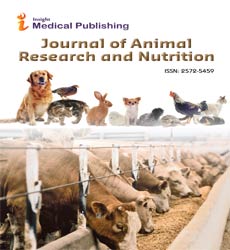Abstract
Assessment of Sustainability of Smallholder Beef Cattle Farms in the North of Tunisia
Sustainable livestock systems should indeed be environmentally friendly, economically viable for farmers, and socially acceptable, notably for animal welfare. For that goal, many sustainability indicators and methods have been developed at the farm level. This paper aims to assess the sustainability of smallholder beef cattle farms in the north of Tunisia, where there is a national goal to improve the country’s beef self-sufficiency, and to explore and discuss potential improvement limitations and solutions. Using IDEA diagnostic method, the sustainability of 20 beef cattle farms from three regions (El-Alia, Ras Djebal and Utique) in the district of Bizerte was evaluated. The socio-territorial scale gives the limiting sustainability value (30.15) in which, the main way of progress relies on quality of product (7.85), ethics and human development (9.65). However, economic sustainability is determined by low level of efficiency (8.55) which depends on financial independence (3.6) and a high level in economic viability (18.5). Socio-territorial scale is the only one which is not linked to production system and is based on farmer’s way of life. On the other hand, global sustainability evaluation of farm as well as creating collective references means to be able to analyze links between the three sustainability scales.
Author(s):
Naceur M’hamdi, Cyrine Darej, Hajer M’hamdi, Khaoula Attia, Latifa Lanouar, Rana Chouchen1, Ghazi Sadkaoui, Adel Abbes
Abstract | Full-Text | PDF
Share this

Google scholar citation report
Citations : 764
Journal of Animal Research and Nutrition received 764 citations as per google scholar report
Abstracted/Indexed in
- Google Scholar
- China National Knowledge Infrastructure (CNKI)
- WorldCat
- International Committee of Medical Journal Editors (ICMJE)
- Secret Search Engine Labs
Open Access Journals
- Aquaculture & Veterinary Science
- Chemistry & Chemical Sciences
- Clinical Sciences
- Engineering
- General Science
- Genetics & Molecular Biology
- Health Care & Nursing
- Immunology & Microbiology
- Materials Science
- Mathematics & Physics
- Medical Sciences
- Neurology & Psychiatry
- Oncology & Cancer Science
- Pharmaceutical Sciences

